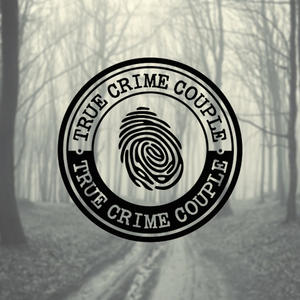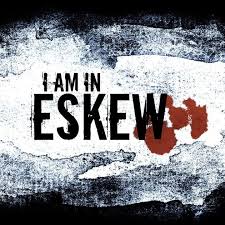Well, here we all are in the summer of 2018. If you’ve clicked on this article, chances are that true crime holds some appeal for you in times like these – whether as a distraction, a cautionary tale, a reminder that things could be worse, a portrait of human nature, a gut check of your own moral boundaries, or simply as a series of fascinating stories that can’t be ignored. Whatever your reasons, you like true crime, and that’s okay! So do we. What’s more, there’s a kaleidoscopic array of podcasts out there to appeal to every type of listener, with every possible reason to put on some headphones and try a new podcast. So read on, dear listener, for a list of 12 outstanding podcasts to get you through the summer.
Crimes of legend: Disgraceland
It’s ironic that sometimes the most famous, seemingly scrutinized people are the very people that we can’t—or won’t—see clearly. If we know vaguely that Sam Cooke was kind of a womanizer, or Jerry Lee Lewis maybe married his cousin, or Norwegian black metal bands got into some serious trouble, we often have a very real instinct not to investigate further. Disgraceland, hosted by Jake Brennan, does just the opposite. Every week, Brennan pairs true crime with musical legend, plucking a criminal case from the annals of rock and roll. Brennan describes the podcast as “adult storytelling: less campfire, and more slightly buzzed guy at the end of the bar who’s seen some shit,” which is an apt description—but it’s also just a fantastic crime podcast. With slick production, atmospheric music, and an engaging host who goes all in, Disgraceland recreates crime rather than retells it, going inside the heads of the people involved, with convincing indirect discourse that can only be the product of really strong writing. At the end of the day, Brennan’s theory is that even if we’re horrified, “we want our rock stars to be bad”–which may be the case. But however you feel about your rock stars, Disgraceland is not to be missed.
A question of innocence: Alibi
Alibi is an award-winning podcast made in South Africa, produced by journalist Paul McNally and co-hosted with DJ Freddy Mabitsela. It examines the case of Anthony de Vries, who was jailed in 1994 for the gruesome double murder of two security guards in a South African supermarket. Seventeen years later, a group of journalism students got a particularly compelling letter from de Vries—still behind bars, and still protesting his innocence. Alibi takes over from there, in truly compelling piece of long-form radio journalism that at times feels like one unforgettable road trip. As McNally and Mabitsela put de Vries’s claims of innocence under a microscope, they must repeatedly question whom to believe, as they attempt to tease apart just a fraction of the pettiness, savagery, triviality, prejudice, and randomness that have all played a part in de Vries’s fate. Alibi is also keenly aware of the social import of this case, which came mere weeks before South Africa’s first democratic elections. McNally is currently at work on Season 2, which is due to come out later this year—so now is the perfect time to catch up on Season 1.
When you’ve heard it all: The Asian Madness Podcast
Asian Madness is an eye-opening look at crime, superstition, and all things strange from an area of the world that has gotten relatively little attention from the crime podcast community. In every episode, host Jessica takes the listener through cases that will likely be news to even the most seasoned true crime listeners—from “The Singing Witch” Mona Fandey to the mortuary worker/serial killer Muhammad Adam Oma. Jessica is careful to paint a picture not only of the case in question, but of the region where it takes place, giving an efficient rundown of the country’s cultural landscape, history, and geography before diving into the case. While Jessica proceeds at a deliberate pace, and never wanders far from the topic at hand, she also has an understated wit and a willingness to call a spade a spade that sets her apart. For any podcast listener who feels like they can’t find anything new, don’t say you’ve heard it all till you’ve heard Asian Madness.
Chapter by chapter: Trace
Ever since Serial first came onto the podcasting scene in 2014, the idea of a podcast with regular installments on one murder is officially nothing new. But even within a known format, any podcast can be new in its own way. Trace is the first crime serial podcast from the Australian Broadcasting Corporation, and it examines the brutal, unsolved murder of bookshop owner Maria James. ABC journalist Rachael Brown works closely with retired homicide detective Rod Iddles, who is still haunted by the Maria James murder, 38 years after it was assigned to him as his very first case—and together, they tell a riveting story. (It’s also very much worth noting that Trace—unlike, say, Serial—was made with the full support and blessing of the victim’s family.) With excellent production value, smart pacing, meticulous research, and absorbing narration from Brown, it’s no wonder that Trace has captivated public interest in Australia. What’s more, Trace has actually uncovered new evidence in the case, which is sending investigators back to the drawing board as we speak.
Crime with a twist: Affirmative Murder
Affirmative Murder is hosted by Alvin Williams and Francel Evans, two true crime fans who cheerfully refer to their show as “the equal opportunity murder podcast.” Every week, Alvin and Fran discuss true crime cases involving minorities, which have often gotten very little media attention. While Alvin and Fran openly admit that they’re not experts, they manage to pull off a balance that many crime podcasts can’t achieve. The pair are funny without being offensive, sincere without being stilted, in an improbable pairing of grim subject matter with an almost defiant optimism. Since April, they’ve been including a Good Vibes segment at the beginning of every episode, where they each share one feel-good news story from the past week—before each presenting their own case, telling stories to each other as much as to us. Listening to Affirmative Murder feels a little like eavesdropping on a fascinating conversation — except that Alvin and Fran know that you’re there, and they want you to be.
Crime storytime: The True Crime Enthusiast Podcast
The True Crime Enthusiast could be described as a feat of unlikely combinations: a sweet-natured host talking earnestly about terrible things, peppered with blink-and-you’ll-miss-them wry asides (“Marie gave birth to the couple’s child, a son that they named Alan. Baby Alan. Now, apologies to anyone who’s called Alan; it’s just a name that I find hard to associate with a newborn baby, really”). Paul, the True Crime Enthusiast of this podcast, is a former military police offer who’s had a lifelong interest in true crime; every week, he goes into more obscure cases in the UK and Europe—eschewing culprits and crimes that are already well known—in the hopes of shining new light on old deeds, and remembering victims who’ve been all but forgotten. He also makes an ongoing effort to showcase the people listening along—devoting whole Listener Week episodes to presenting cases and research submitted by his (fully credited) listeners. And they listen for good reason: Paul is a fastidious researcher, natural storyteller, and oddly endearing host, who creates an absorbing and consistently great podcast.
Crime for the curious: Stuff They Don’t Want You to Know
As the title suggests, Stuff They Don’t Want You to Know is a podcast with a healthy interest in conspiracy theories. It also has a healthy interest in crime, mystery, and all things bizarre—from tulpas to vampires to superpowers, from James Comey to the ghosts of Versailles to a running series on uncaught serial killers. But what makes this podcast special isn’t just the sheer breadth of topics discussed; it’s the fact that those discussions are consistently thoughtful, rational, perceptive, and articulate, as informative as they are fun to listen to. Hosts Ben, Matt, and Noel—who call themselves “conspiracy realists”—have some of the most engaging true crime discussions around, especially for listeners who are willing to have the spotlight swung around onto them. Their recent episode on serial killer memorabilia examines not only the culture of ghoulish souvenirs, but also the culture of true crime overall, where there’s at least a little ghoulishness in all of us, and where the very celebrity of serial killers is steeped in the type of racial bias that podcasts like Affirmative Murder are reacting against. Stuff They Don’t Want You to Know is perfect for people who aren’t just interested in crime, but in a little bit of everything—and who always want to know more.

Crime down winding streets: Murder Mile
Michael J Buchanan-Dunne is a London tour guide who has created a unique and highly-rated tour through the heart of the city: Murder Mile Walks. Within one square mile of London’s West End, Buchanan-Dunne knowledgeably leads his followers through 21 historical crime scenes—some legendary, some practically unknown. If this sounds like exactly the sort of morbid outing you’d enjoy, but you sadly can’t get to London, fear not! Buchanan-Dunne has turned his tour into a weekly podcast. Murder Mile, which was nominated for Best True Crime Podcast at this year’s British Podcast Awards, combines careful research, compelling narration, effective music, and sounds recorded from the original locations into a polished and often frightening experience that reminds us of how visual a podcast can be. The Murder Mile website also has handy interactive maps for every episode, as well as photographs and videos from the locations and cases described. Wherever you are in the world, you can press play on an episode of Murder Mile and instantly be transported to the true crimes of London.
Criminal conversation: True Crime Couple
As you might have guessed from the name, True Crime Couple is hosted by a couple who loves true crime. Kay and John, a young couple in New York, started the podcast as an outlet to talk about true crime after their friends collectively decided that the pair’s morbid fascination was weird. But True Crime Couple covers more than crime; Kay, who is a high school history teacher, also makes a point to give the listeners a historical backdrop to the cases they’re discussing, so you’re sure to learn about more than the specific crime at hand. Oftentimes, those crimes are ones you’ve never heard of—and ones you won’t hear covered anywhere else. All in all, True Crime Couple will likely appeal to listeners who enjoy podcasts like True Crime Garage; Kay and John are a likable, spontaneous pair, who talk about crime in a well-researched way that makes for a compelling and enlightening listen.
Expert opinion: Real Crime Profile
In terms of credentials, crime podcasts don’t get more impressive than this one. Real Crime Profile is hosted by Laura Richards, a criminal behavioral analyst who was trained at the FBI and later worked at New Scotland Yard; Jim Clemente, a retired FBI Supervisory special agent and profiler; and Lisa Zambetti, the casting director for Criminal Minds. Together, Laura, Jim, and Lisa discuss not only true crime cases, but also related topics; one episode will find them discussing Mindhunter, and in another, they’ll take a look at Stormy Daniels and Michael Cohen. Another episode might deal with stalking, or school shootings, or 13 Reasons Why. The co-hosts also conduct absorbing, moving interviews with people involved in various cases—whether the family members of victims, the investigators trying to find answers, or the forensic criminologists who recreate the crime scenes for a jury. But whatever the topic, Real Crime Profile makes a consistent effort to remember the victims rather than memorialize the perpetrators, and to always stay aware of the very human tragedy at the heart of any true crime discussion.
Creative crime: I Am In Eskew
I Am In Eskew is a new horror fiction podcast, set in the strange, nightmarish town of Eskew, which is riddled not only with crime as we know it, but with horrors so unique and grotesque that you couldn’t even anticipate them as something to fear. David Ward, a young man who is mysteriously trapped in Eskew, records his experiences as a kind of one-sided conversation with unseen listeners, in a desperate attempt to feel less alone. Whether he’s interviewing a murderer, exploring a perplexing art gallery, or watching Eskew citizens succumb to an illness that compels them to dig into the earth, David attempts to paint a picture of a city where the rain never stops, every angle of every building seems wrong, and the very worst of human nature is constantly on display. Anyone who reads Lovecraft, Ligotti, or Jackson, who loves the darkest moments of Welcome to Night Vale, who welcomes the chance for a disturbing commute, or who respects compelling narrators and fantastic writing should take a visit to Eskew. Unlike its beleaguered protagonist, you don’t have to stay, but you may find yourself returning again and again.
The culture of crime: Charm City
Charm City, a five-part podcast just released by The New York Times, covers a deeply complicated story: the fatal police shooting of 18-year-old Lavar Montray Douglas, known to friends and family as Nook, on the streets of Baltimore in 2016. Unlike Freddie Gray, who died a year before, resulting in protests that Nook and his friends attended—and unlike Eric Garner, Michael Brown, Trayvon Martin, and Stephon Clark—Nook had a gun when he was killed. Like many of his friends, he had a criminal record. And like many of his friends, he was shot to death before making it out of his teens. Journalists Sabrina Tavernise and Lynsea Garrison do not canonize Nook, but they don’t denounce him either. They spent four months in Baltimore—researching the case, conducting extensive interviews with Nook’s family, and taking a deep dive into the culture of Baltimore, where young people are faced with a slew of dangerous choices, where rampant police corruption has eroded public trust, and where every death leaves behind a permanent, irreparable void.




























